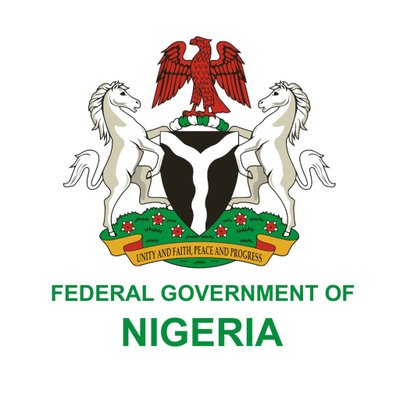Business
FG Earmarks $20bn For Gas Expansion Annually

The Federal Government says about $20 billion annual investments would be required to achieve the desired gas expansion projects in Nigeria and deepen the use of gas across the country.
The government disclosed this through the Nigeria Extractive Industries Transparency Initiative (NEITI) at the Decade of Gas Action Plan Dialogue, organised by the African Initiative for Transparency, Accountability and Responsible Leadership, in Abuja on Monday.
The Executive Secretary, NEITI, Ogbonnaya Orji, explained that for the gas utilisation policy of the Federal Government to work, there was a compelling need for deliberate ambitious investment in gas infrastructure.
He said this would include investments in specific connectivity across upstream facilities to processing, power plants, and other end uses.
Speaking on how to review Nigeria’s gas utilisation policy to align with the country’s energy transition plan, he said, “the network code provides a framework through third-party access to resolve some of the connectivity issues, but to a large extent, achieving the desired gas expansion will require an estimated $20bn annually to bridge Nigeria’s gas infrastructure.
“Given the shrinking fossil fuel investment landscape, clarity is required of the infrastructure to be prioritised”.
Orji noted that the largest gas reserves in Africa was in Nigeria, as the country’s gas reserves was the 9th largest globally.
He said NEITI reports put the country’s gas reserves at over 200 trillion cubic feet, as the agency’s position was consistent with the provisions of the Petroleum Industry Act passed in 2021.
“The Petroleum Industry Act provided the most significant progress for the gas sector in strengthening governance and providing fiscal frameworks for the sector’s growth.
“We call on the government to urgently put a national gas utilisation policy in place. Such policy needs to be clear on the specific roles of the industry, government, and investors in implementing the plan.
“Similarly, the gas utilisation plan should show the market-driven opportunities that would successfully translate the gas plans into sustainable economic development. NEITI recommends a costed plan with realistic targets that is easy to implement”, Orji stated.
On his part, the Executive Director, African Initiative for Transparency, Accountability and Responsible Leadership, Louis Ogbeifun, said many countries were currently abandoning fossil fuels.
He called on the Federal Government to increase its crude oil production in the short run beyond the current level to have money to diversify and invest in other alternative sources.
“In the medium and long-term periods, natural gas, which Nigeria has in abundance, which has been described as cleaner than coal or petroleum, is also within the fossil fuel family.
“Therefore, walking off fossil fuel for Nigeria is not immediately foreseeable. The question is, how does Nigeria maximise its hydrocarbon benefits with so much of its assets lost to vandalism, crude theft, and the massive depreciation of its currency?
“Nigeria’s focus on using gas as a sustainable energy alternative is capital-intensive. It has been speculated that Nigeria would need over $1tn to achieve the 2060 zero-emission targets,” Ogbeifun stated.
He urged citizens to be worried about how to fund gas projects in a manner that would be cost-efficient.
Business
PENGASSAN Tasks Multinationals On Workers’ Salary Increase

Business
SEC Unveils Digital Regulatory Hub To Boost Oversight Across Financial Markets

Business
NAFDAC Decries Circulation Of Prohibited Food Items In markets …….Orders Vendors’ Immediate Cessation Of Dealings With Products

Importers, market traders, and supermarket operators have therefore, been directed to immediately cease all dealings in these items and to notify their supply chain partners to halt transactions involving prohibited products.
The agency emphasized that failure to comply will attract strict enforcement measures, including seizure and destruction of goods, suspension or revocation of operational licences, and prosecution under relevant laws.
The statement said “The National Agency for Food and Drug Administration and Control (NAFDAC) has raised an alarm over the growing incidence of smuggling, sale, and distribution of regulated food products such as pasta, noodles, sugar, and tomato paste currently found in markets across the country.
“These products are expressly listed on the Federal Government’s Customs Prohibition List and are not permitted for importation”.
NAFDAC also called on other government bodies, including the Nigeria Customs Service, Nigeria Immigration Service(NIS) Standards Organisation of Nigeria (SON), Nigerian Ports Authority (NPA), Nigerian Maritime Administration and Safety Agency (NIMASA), Nigeria Shippers Council, and the Nigeria Agricultural Quarantine Service (NAQS), to collaborate in enforcing the ban on these unsafe products.
-

 Politics4 days ago
Politics4 days agoWhy Reno Omokri Should Be Dropped From Ambassadorial List – Arabambi
-

 Politics3 days ago
Politics3 days agoPDP Vows Legal Action Against Rivers Lawmakers Over Defection
-

 Sports3 days ago
Sports3 days agoNigeria, Egypt friendly Hold Dec 16
-

 Sports3 days ago
Sports3 days agoNSC hails S’Eagles Captain Troost-Ekong
-

 Oil & Energy3 days ago
Oil & Energy3 days agoNCDMB Unveils $100m Equity Investment Scheme, Says Nigerian Content Hits 61% In 2025 ………As Board Plans Technology Challenge, Research and Development Fair In 2026
-

 Politics3 days ago
Politics3 days agoRIVERS PEOPLE REACT AS 17 PDP STATE LAWMAKERS MOVE TO APC
-

 Politics3 days ago
Politics3 days agoWithdraw Ambassadorial List, It Lacks Federal Character, Ndume Tells Tinubu
-

 Sports3 days ago
Sports3 days agoMakinde becomes Nigeria’s youngest Karate black belt

